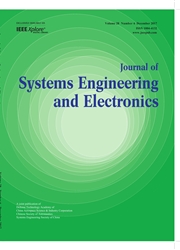

 中文摘要:
中文摘要:
Corresponding author.Gang Tao received his B.S. degree from Uni- versity of Science and Technology of China in 1982, M.S. and Ph.D. degrees from University of Southern California during 1984 to 1989. He worked in areas of adaptive control, with particular interests in adaptive control of systems with multiple inputs and outputs and with non- smooth nonlinearities and actuator failures, in stability and robustness of adaptive control systems, and in pas- sivity characterizations of control systems. Recently he has been working on adaptive control of systems with uncertain actuator non- linearities and failures, structural damage and sensor uncertainties, for aircraft flight control applications. He published 6 books and over 250 papers in these areas. He served as an associate editor for Automatica, International Journal of Adaptive Control and Signal Processing, and IEEE Trans. on Automatic Control. He is a fellow of IEEE. E-mall: gt9s @virginia.edu Ruiyun Qi received her B.E. degree in automatic control from University of Science and Technology of China in 2001, and Ph.D. degree in electrical engineering from University of Birmingham, UK, in 2007. She joined the College of Automation Engineering, Nanjing University of Aeronautics and Astronautics, in 2008. Currently she is an associate professor. Her research interests include fuzzy control and adaptive control. Chang Tan received her B.E. degree in electrical and information engineering from Nanchang Institute of Aeronautical and Technology in 2005, and M.S. degree in control theory and control engineering from Nanchang Hangkong University in 2009. She is recently a Ph.D. candidate in Nanjing University of Aeronautics and Astronautics. Her research interests include adaptive control and intelligent control.
 同期刊论文项目
同期刊论文项目
 同项目期刊论文
同项目期刊论文
 Adaptive backstepping control for a hypersonic vehicle with uncertain parameters and actuator faults
Adaptive backstepping control for a hypersonic vehicle with uncertain parameters and actuator faults 期刊信息
期刊信息
